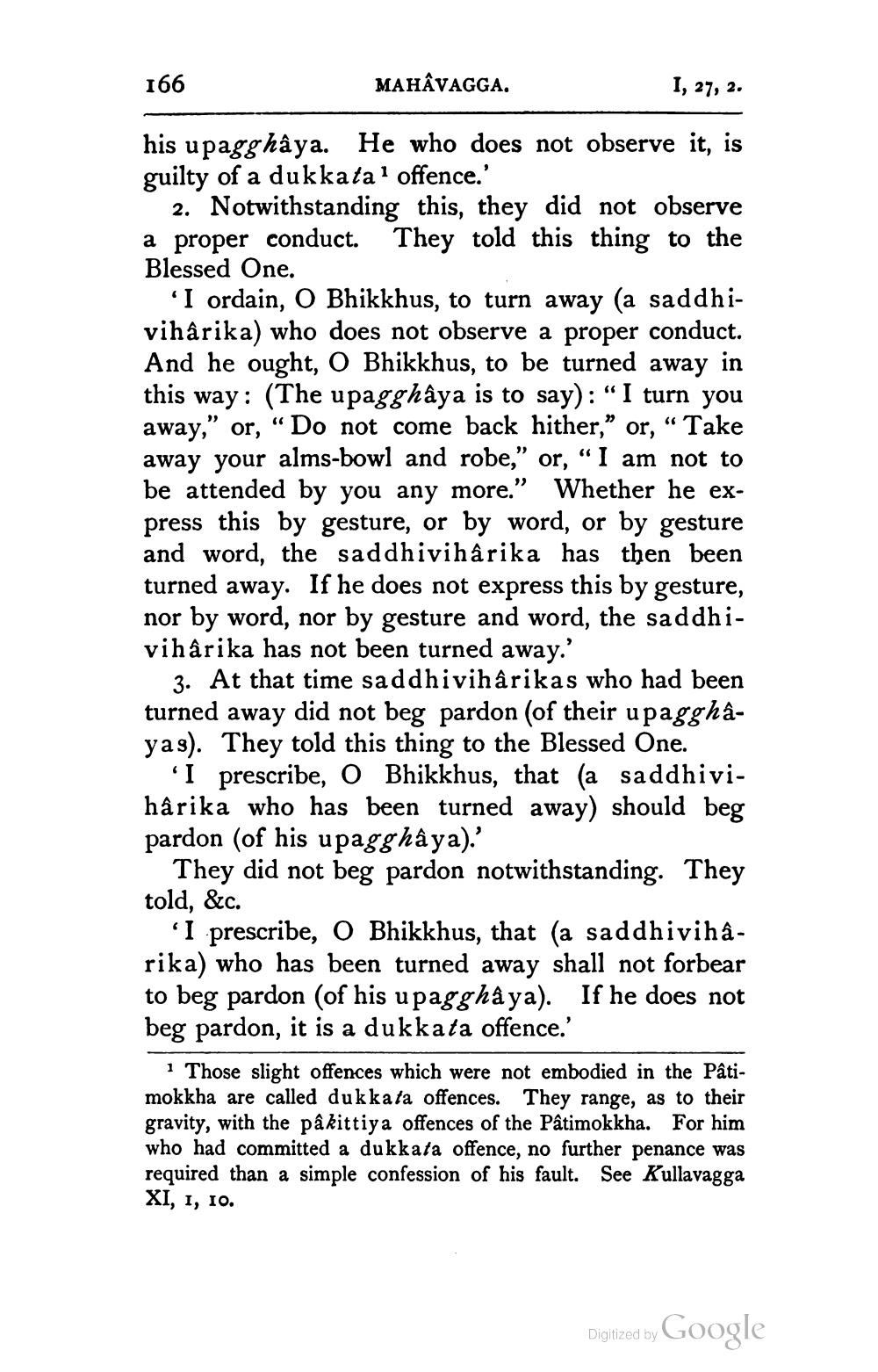________________
166
MAHÂVAGGA.
1, 27, 2.
his upagghầya. He who does not observe it, is guilty of a dukkata? offence.'
2. Notwithstanding this, they did not observe a proper conduct. They told this thing to the Blessed One.
I ordain, O Bhikkhus, to turn away (a saddhiviharika) who does not observe a proper conduct. And he ought, О Bhikkhus, to be turned away in this way: (The upagghầya is to say): “I turn you away,” or, "Do not come back hither," or, " Take away your alms-bowl and robe," or, “I am not to be attended by you any more." Whether he express this by gesture, or by word, or by gesture and word, the saddhivihârika has then been turned away. If he does not express this by gesture, nor by word, nor by gesture and word, the saddhiviharika has not been turned away.'
3. At that time saddhiviharikas who had been turned away did not beg pardon (of their upagghayas). They told this thing to the Blessed One.
'I prescribe, O Bhikkhus, that a saddhivihârika who has been turned away) should beg pardon (of his upagghầya).'
They did not beg pardon notwithstanding. They told, &c.
'I prescribe, O Bhikkhus, that (a saddhiviharika) who has been turned away shall not forbear to beg pardon (of his upagghåya). If he does not beg pardon, it is a dukkata offence.'
1 Those slight offences which were not embodied in the Pâtimokkha are called dukka ta offences. They range, as to their gravity, with the pâkittiya offences of the Pâtimokkha. For him who had committed a dukkata offence, no further penance was required than a simple confession of his fault. See Kullavagga XI, 1, 1o.
Digitized by Google




